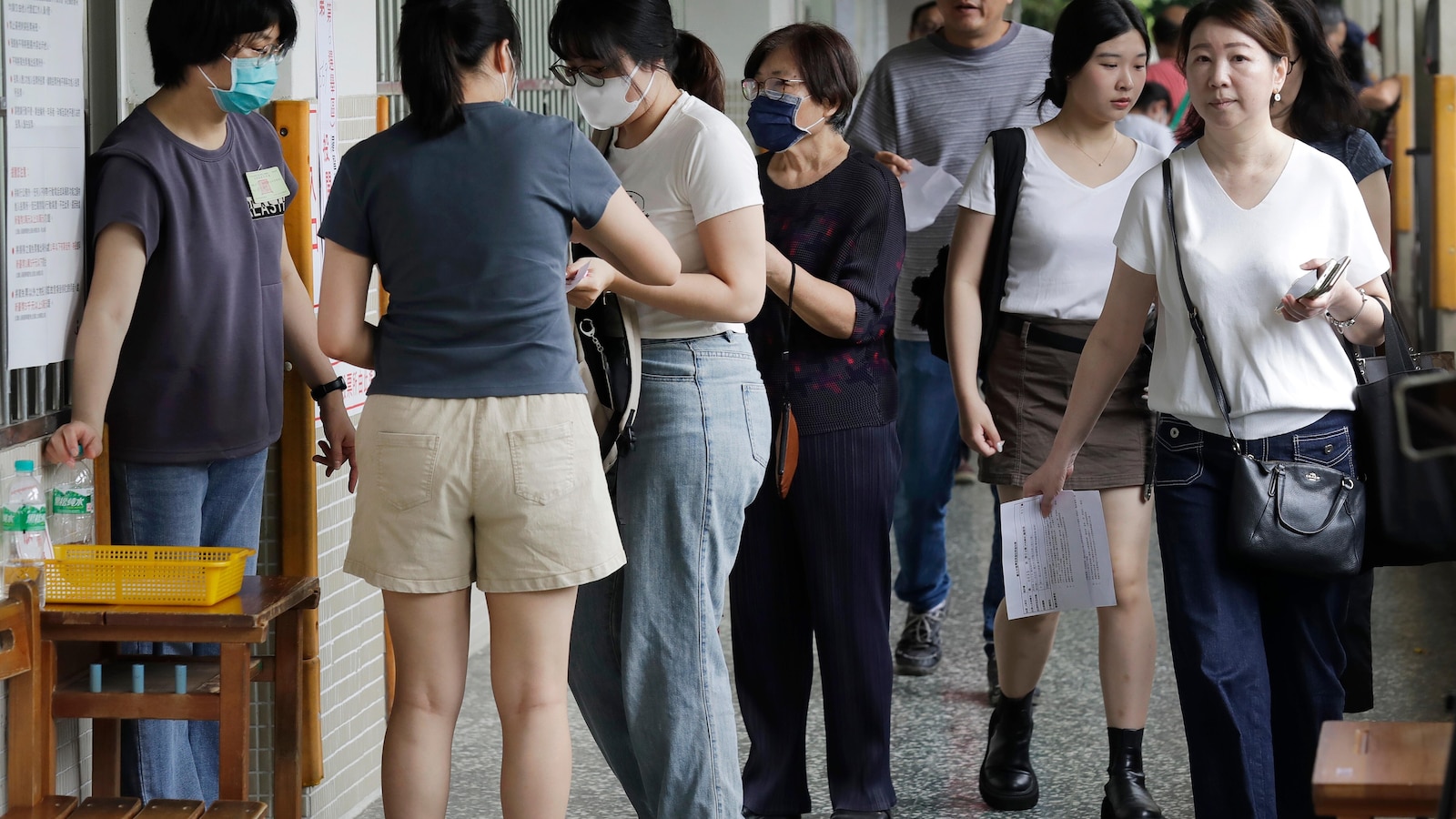ARTICLE AD BOX
A federal judge on Tuesday temporarily blocked the Trump administration’s freeze on federal grants that set off a firestorm of alarm and confusion around Washington as lawmakers and aid organizations demanded more time to figure out what the White House order would affect.
U.S. District Judge Loren AliKhan halted the freeze moments before it was to go into effect. His ruling sidestepped the legality of the president’s move but gave the Trump administration and concerned nonprofit groups more time to make their case.
Additional court arguments are scheduled for Monday morning.
The ruling by Judge AliKhan, a Biden appointee, capped a dramatic day in which the Trump administration sought to reassure anxious Americans and lawmakers that federal funds for low-income school lunches, housing aid and combating wildfires wouldn’t disappear.
A confusing late-night order from the Office of Management and Budget to freeze federal grant and loan programs sparked widespread uncertainty among advocacy organizations, state officials and lawmakers. Some griped about error messages when they tried to access portals to draw down funds for Medicaid, community health centers and more.
House Minority Leader Hakeem Jeffries, New York Democrat, called an emergency meeting to develop a “three-prong strategy” to counter the grant pause.
Hours after OMB issued the two-page memo directing agencies to “temporarily pause” the disbursement of funds, many in Washington asked whether the move would cut off billions of dollars dedicated to Americans’ health and safety.
In her first White House briefing, press secretary Karoline Leavitt sought to clarify the memo. She insisted the freeze wouldn’t directly affect federal assistance to needy people, such as Social Security, welfare programs and food stamp initiatives.
“Assistance that is going directly to individuals will not be impacted by this pause,” Ms. Leavitt told reporters.
She would not say whether indirect social service programs, such as Meals on Wheels, would be impacted. She declined to say how long the freeze would last and did not explain how programs affected by the order could operate with the pause in effect.
Ms. Leavitt insisted the order left “no uncertainty” and told reporters they were the only ones baffled by it.
Moments after the briefing, Ms. Leavitt confirmed on X that the online portal through which the federal government disburses funds to state Medicaid departments had stopped working. The breakdown temporarily jeopardized federal payments to tens of millions of low-income Americans for medical treatment.
SEE ALSO: House Democrats plan ‘three-pronged counteroffensive’ against Trump’s assistance freeze
Ms. Leavitt said the White House was aware of the outage and was working to “have it back online shortly.” She said “no payments have been affected.”
A web portal housing providers use for government assistance stopped working.
Democrats seized on the disruptions by saying Mr. Trump was going to cut government spending at the expense of children, seniors and veterans.
“Republicans are ripping off hardworking Americans by stealing taxpayer dollars, grants and financial assistance as part of their corrupt scheme to pay off billionaire donors and wealthy corporations,” Mr. Jeffries wrote to fellow Democrats.
Senate Republicans largely defended Mr. Trump’s authority to freeze the disbursements but said they had questions.
Republican senators said they wanted to hear from the White House budget office about how the administration plans to implement the funding freeze, the programs it would impact and what will happen after a comprehensive review of financial assistance is completed.
“There’s all kinds of scenarios when you talk about this large of a number of programs and the effect,” said Sen. Kevin Cramer, North Dakota Republican.
Speaking with reporters ahead of the Senate Republicans’ weekly conference lunch meeting, Mr. Cramer said he did not think any of his colleagues were in panic mode “just yet” but had many questions.
Those questions percolated during the lunch as senators sought clarification on which programs the funding freeze would impact.
As uncertainty reigned, a senior administration official sought to clarify the memo by saying the move is a temporary review of federal programs to ensure they align with Mr. Trump’s recent executive orders eliminating funding for diversity, equity and inclusion programs and President Biden’s climate initiatives.
The official said agency reviews had turned up evidence of spending that wasn’t in line with Mr. Trump’s priorities, such as the State Department’s multimillion-dollar program to send condoms to the Gaza Strip. Agencies can request exemptions if they conclude the pause has an adverse impact, the official said.
The White House sent federal agencies a lengthy questionnaire Tuesday seeking details about their spending. The questionnaire inquired whether any programs support diversity, equity and inclusion, abortion or support for migrants.
The questionnaire covered more than 2,600 funding programs from Cabinet-level departments to smaller independent agencies, such as the Institute of Museum and Library Services.
The spreadsheet outlines funding programs for various federal services, including those aimed at helping the poor and those that have raised questions about government spending.
Among the programs slated for review are:
• School meals for low-income students.
• Programs that help homeless veterans reintegrate into society.
• The Interior Department’s wildfire preparedness efforts.
• A $1.9 million grant to the National Sheep Industry to bolster the marketing of sheep products.
• A Commerce Department program aimed at teaching Americans about hot tub safety.
• A program to increase diversity in farming.
• Alex Miller contributed to this report.

 5 months ago
183
5 months ago
183








 English (US) ·
English (US) ·